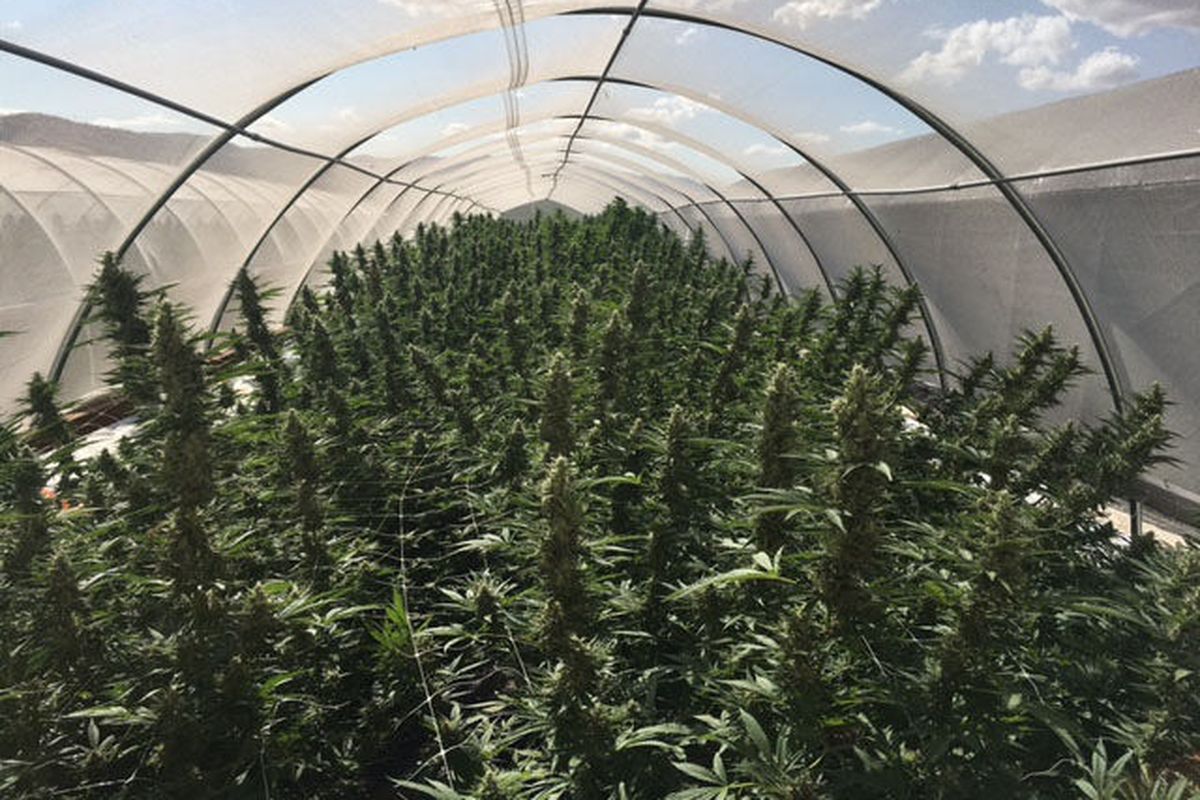Longtime advocate looks ahead; Jeremy Moberg never has lost his passion for plant

Jeremy Moberg is a warrior for the sun and for quality outdoor cannabis.
Advocating for sustainable cannabis for over 25 years, Moberg owns Cannasol Farms in Riverside and is the founder of the Washington Sungrowers Industry Association.
Moberg began his cannabis journey when he was 17 and living on his own in Spokane.
This relocation was due to a dispute in Moses Lake, Moberg’s hometown, after his high school reprimanded him for practicing civil disobedience.
It was at the beginning of the Gulf War, which Moberg marched against. He said his public protest led to hate mail, threats, and being publicly accosted for taking a stand.
“I basically got ran out of town for protesting and being a high school student activist, and I was living on my own, getting $200 a month and having to survive,” Moberg said. “So I did the natural thing and started to grow cannabis.”
At the time, he was living across the street from a legendary underground cannabis grower. He started to learn and grow in his closet with a single light and one plant. He had the privilege to receive one of the most famous land strains in Spokane in the early ’90s known as “The Musk.”
Local and national anti-drug paranoia was high in the 1990s and early 2000s, which led to arrests of growers and sellers of cannabis as well as glassware makers.
“Some of the greatest glass artists went down in that raid and at this time I was actually working in a glass shop, but we remained lucky that day,” Moberg recalled.
So Moberg continued to grow what he likes to call guerilla-style, and moved up in the deep woods of Okanogan County. He recalled preparing his clones for the long, nerve-wracking drive north for outdoor planting, not only worrying about arrest but possible cross-pollination with other outdoor plants.
In 2006, Moberg was living off-grid in Okanogan County in a Volkswagen bus and a little hut under a pine tree with tarps for light deprivation, growing what he called the “best cannabis ever.”
Moberg continued studying at Evergreen College for a degree in biology and fisheries, a topic which included training in habitat monitoring, sampling and statistics.
In 2012, when Washington voters approved Initiative 502, he celebrated. But when he read the new rules from the Liquor and Cannabis Board, he noticed that sungrown production was excluded. He decided he needed to take a stand.
Moving forward
His first step was to form the Okanogan Cannabis Association. Today, it’s grown into the Washington Sungrowers Industry Association and is considered the state’s largest non-profit cannabis association, representing over 100 producer/processors.
“I wrote to some of my legislators, basically saying look at us [Seattle] known for being environmentally conscious but not allowing sustainable sungrown cannabis,” he said. “This is not right.”
He bought some suits, created a PowerPoint and headed to Olympia during the 2013 session. He informed the LCB that not only can one grow cannabis outside, but there is a major obligation to the environment to do so.
“When this passed it was one of the greatest achievements of my life – I really felt like I was making a huge difference,” he said.
He received national recognition for this effort, which encouraged him to create Cannasol, a producer/processor that prides itself on clean, sustainable sun-grown cannabis, created with organic soils, zero pesticides, recycled nutrients, no till practice, and light deprivation.
“I just want consumers to treat cannabis just like everything else: I want them to be informed and they should support companies that support their values, and that’s what I feel Cannasol is trying to do,” Moberg said.
WSIA just hosted its fourth-annual Sun Cup, a competition that brings together sungrowers from across Washington to compete in more than 10 categories. Judges include retail buyers, social media influencers and cannabis connoisseurs.
The WSIA has also created the Craft Cup competition, a live streamed online event presenting awards for best flower, edibles, concentrates, infused pre-roll and topicals. Winners receive detailed feedback, a trophy and digital assets plus social media coverage.
Moberg remains an active and positive force for the cannabis industry and still works with the LCB and other state committees. He and other WSIA members continue to push for legislative changes that can allow certain smaller producers to sell cannabis directly to consumers, similar to wineries.
“I hope to empower farmers, and stop being a part of the supply chain that makes everyone else money and not them. We need to preserve the tight-knit family farms and not big production chains,” Moberg said.
Beyond public policy, he also looks ahead to the future of his farm. He’d love to build an RV park and a pond, maybe tiny houses and van lifers, a community kitchen, and an on-site cannabis store with the best of Cannasol products. It would be a place to smoke with friends where open consumption is allowed, where people can come and feel comfortable.